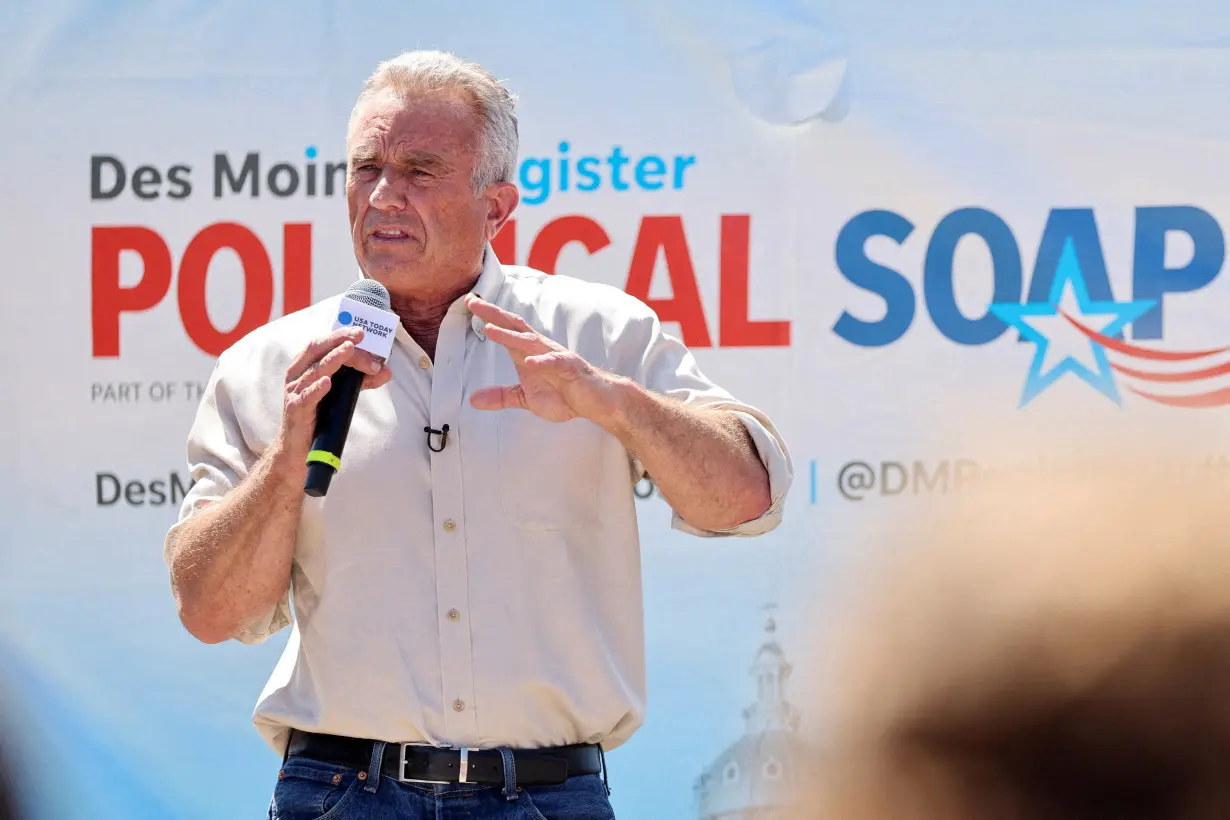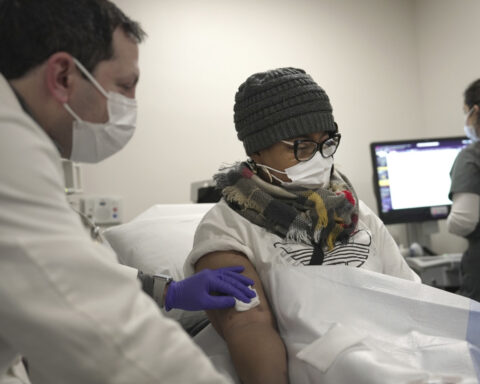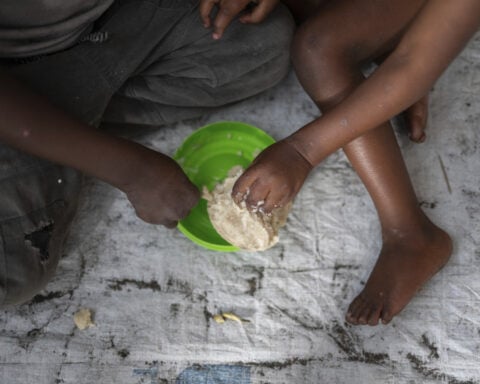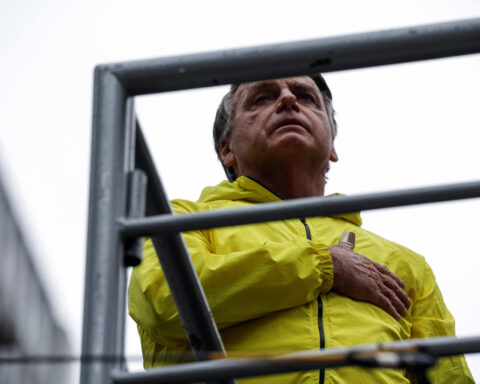By Jason Lange
WASHINGTON (Reuters) - Anti-vaccine activist Robert F. Kennedy Jr., a member of one of the most storied American political families, could draw the support of about one in seven U.S. voters, according to a Reuters/Ipsos poll ahead of his presidential campaign's expected Monday launch.
The poll found that Kennedy, the son and namesake of the slain U.S. senator, could draw votes away from both Democratic President Joe Biden and his likely Republican challenger Donald Trump in the 2024 election. Kennedy is expected to run as an independent.
That is a meaningful complication in a narrowly and bitterly divided country where polls show low enthusiasm for both Biden and former President Trump in a contest that is likely to be decided in a handful of competitive states.
The two-day nationwide poll completed Wednesday found that in a two-way matchup, Biden and Trump each had the support of 35% of respondents, with 11% saying they would vote for some other candidate, 9% saying they would not vote and 9% saying they did not know who they would vote for.
In a hypothetical three-way matchup, Kennedy drew 14% support, Biden's share fell to 31% and Trump's to 33%. About 9% said they wouldn't vote and 13% said they did not know who they would vote for.
That result also showed Biden and Trump essentially tied because the poll was based on an online survey of 1,005 people and had a credibility interval, a measure of precision, of about 4 percentage points in either direction.
Kennedy is expected to announce in Philadelphia on Monday that he will drop his challenge to Biden for the Democratic Party's nomination, and run as an independent candidate instead.
While not considered a top contender for the presidency, Kennedy benefits from a well-known name. In addition to his father, his uncle Democratic President John F. Kennedy was also assassinated during the turbulent 1960s.
Kennedy's appeal to voters from both parties could owe in part to his public positions that align more with the Trump supporters who have embraced anti-vaccination and conspiracy theories than with Biden's centrist and left-leaning base.
Kennedy was banned from YouTube for spreading misinformation about vaccines and the COVID-19 pandemic. The White House, other Democrats and medical professionals said his remarks fueled antisemitism and racial bias.
Kennedy has also suggested anti-depressants cause school shootings, Wi-Fi radiation causes cancer and that the 2004 election that re-elected George W. Bush was stolen, according to FactCheck.org.
(Reporting by Jason Lange; Editing by Scott Malone and Rami Ayyub)

 Trump has begun another trade war. Here's a timeline of how we got here
Trump has begun another trade war. Here's a timeline of how we got here
 Canada's leader laments lost friendship with US in town that sheltered stranded Americans after 9/11
Canada's leader laments lost friendship with US in town that sheltered stranded Americans after 9/11
 Chinese EV giant BYD's fourth-quarter profit leaps 73%
Chinese EV giant BYD's fourth-quarter profit leaps 73%
 You're an American in another land? Prepare to talk about the why and how of Trump 2.0
You're an American in another land? Prepare to talk about the why and how of Trump 2.0
 Chalk talk: Star power, top teams and No. 5 seeds headline the women's March Madness Sweet 16
Chalk talk: Star power, top teams and No. 5 seeds headline the women's March Madness Sweet 16
 Purdue returns to Sweet 16 with 76-62 win over McNeese in March Madness
Purdue returns to Sweet 16 with 76-62 win over McNeese in March Madness








